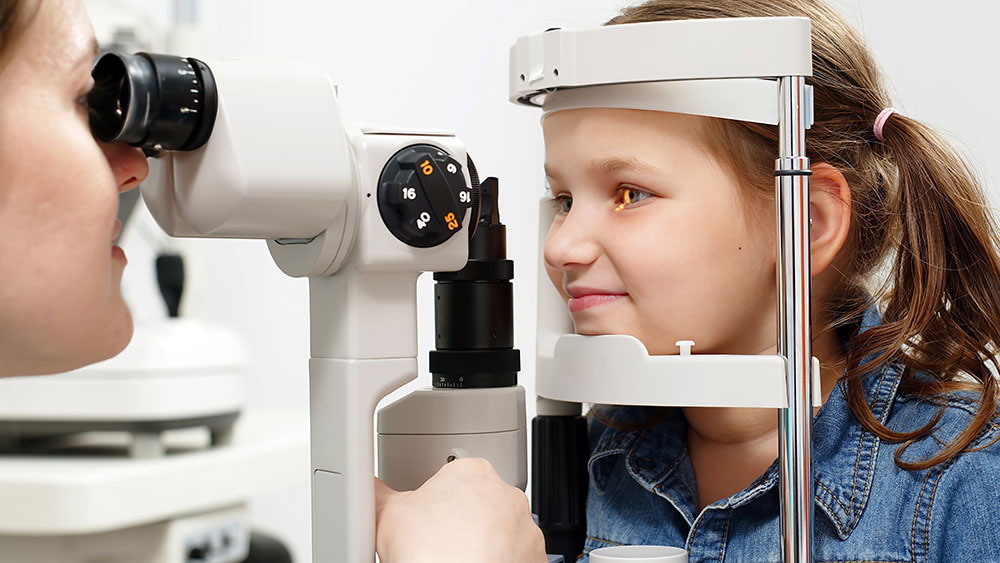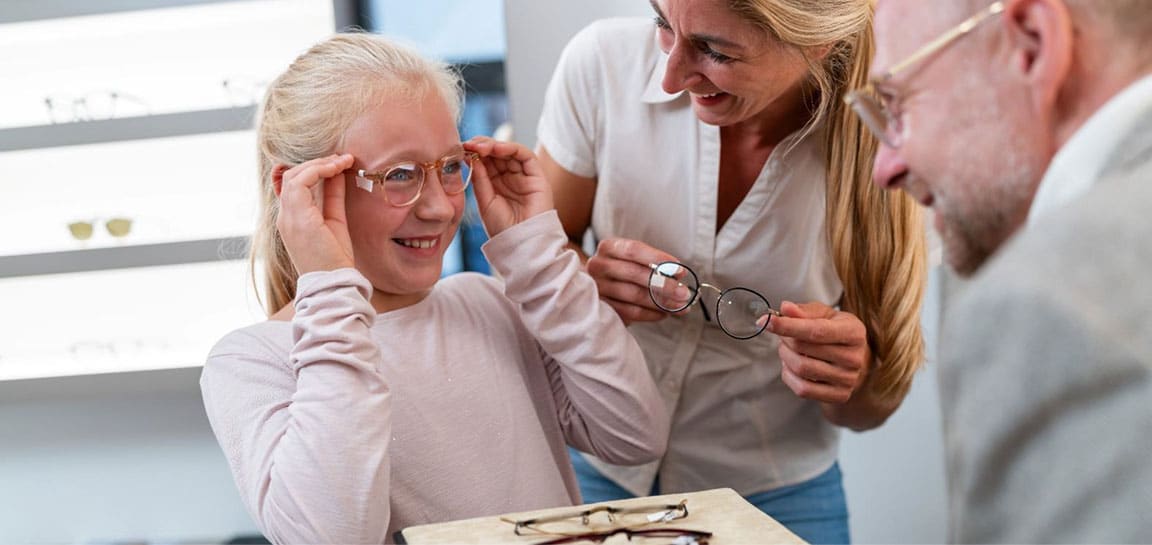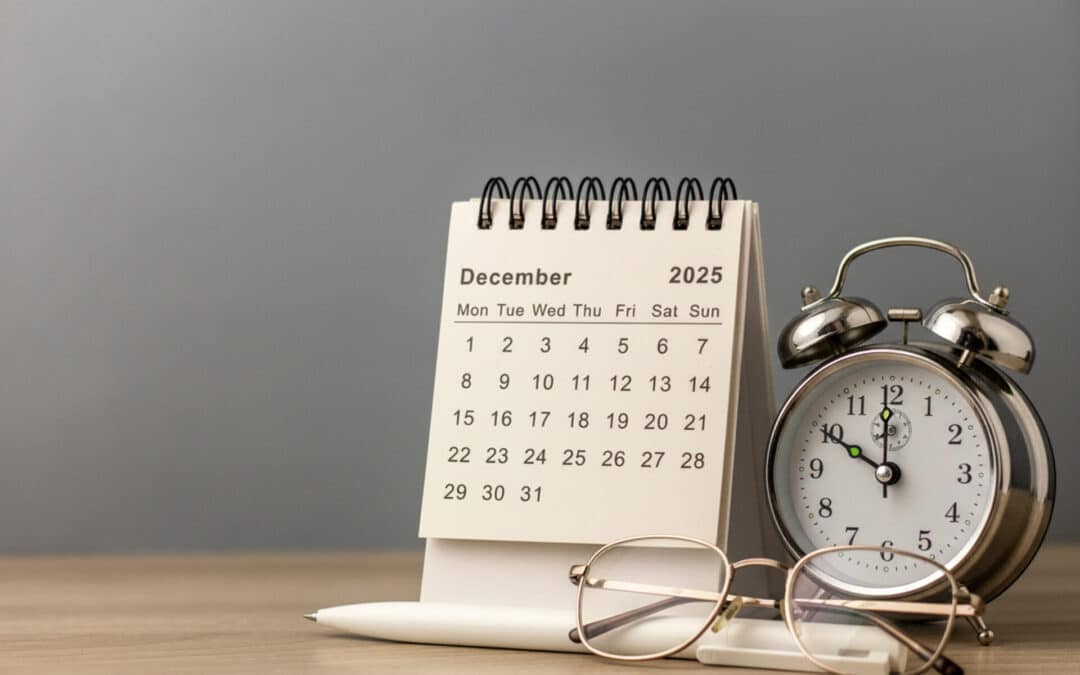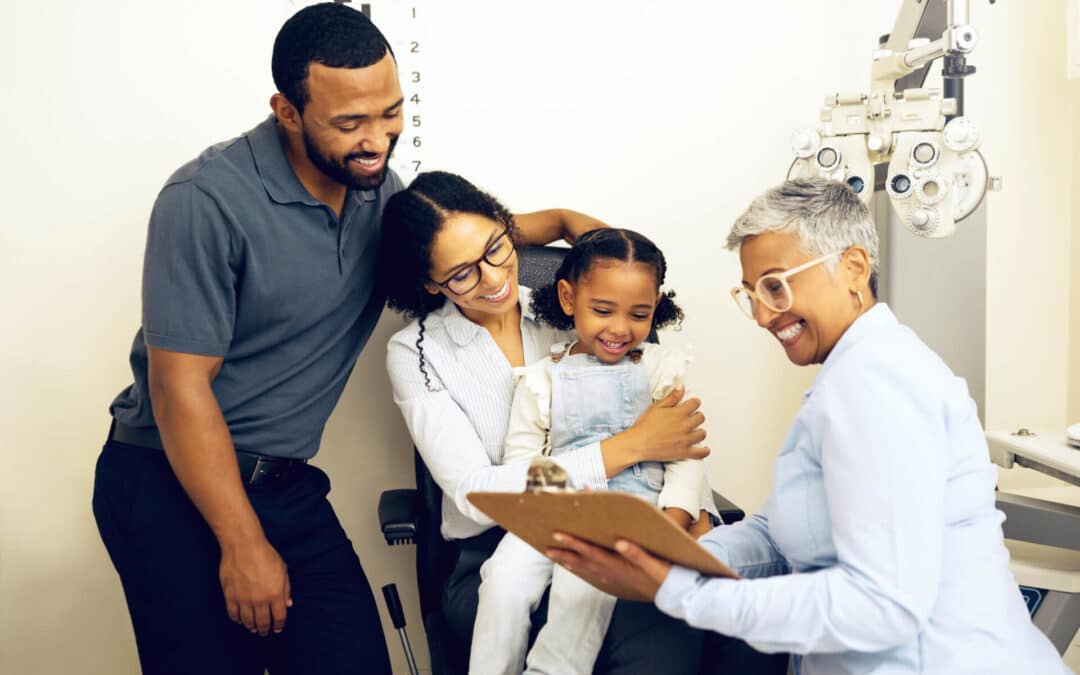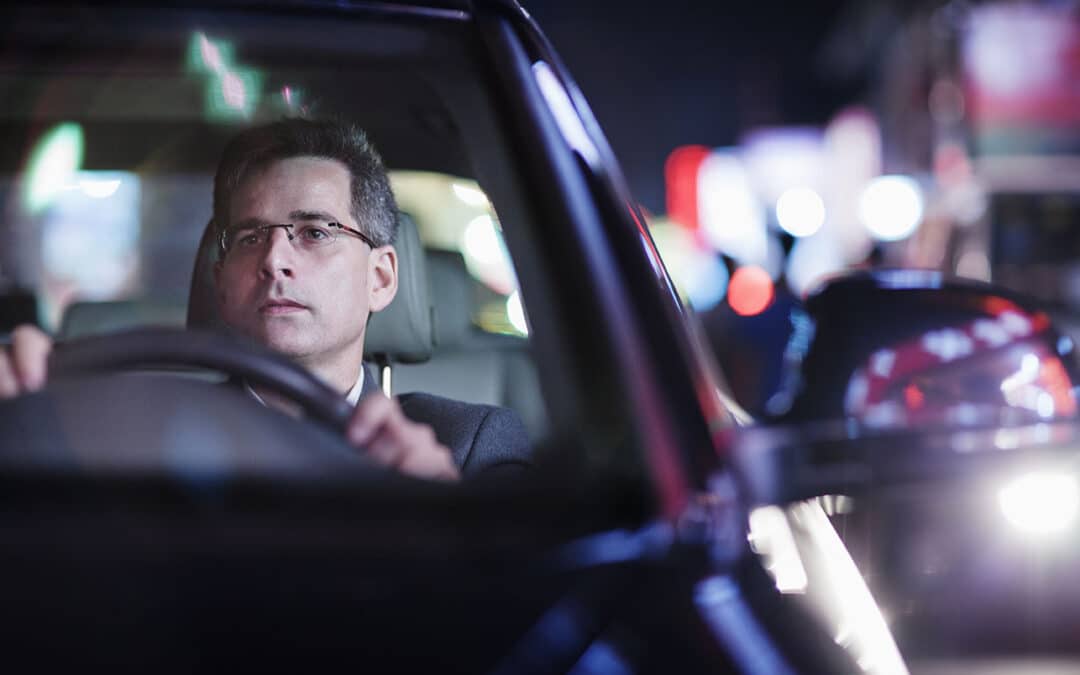Children’s eyes grow and change quickly — and so do their vision needs. At Maine Optometry, parents often ask when their child should have their first eye exam, how often to come back, and what happens during the visit.
Here’s what our doctors recommend for keeping your child’s vision healthy from infancy through their school years.
What Age Should My Child Have Their First Eye Exam?
Can babies or toddlers get eye exams?
Yes. Eye exams can begin as early as six months old — especially if parents notice signs like squinting, eye rubbing, or unusual eye movements.
Even if your child isn’t verbal yet, a pediatric eye exam can help detect early vision issues and
ensure the eyes are developing properly.
Can my child get an eye exam if they can’t read yet?
Absolutely. Our doctors use child-friendly tests that don’t rely on reading letters — including pictures, color patterns, and light response tests. These allow us to measure focusing ability, depth perception, and eye coordination, even in toddlers and preschoolers.
Does my child still need an eye exam if a pediatrician has checked their eyes?
Yes. While pediatricians perform basic screenings, a comprehensive optometric exam is more detailed. It checks for eye teaming (the ability for a child’s eyes to work together smoothly to form one clear image), depth perception, refractive errors (like nearsightedness or astigmatism), and overall eye health — areas general screenings at a pediatrician’s office can miss.
How Often Should Kids Have Eye Exams?
Good vision isn’t just about seeing the board at school. A child’s eye health forms the foundation of their success in the classroom, on the playground, at home, and beyond.
At Maine Optometry, we encourage parents to have their child’s eyes examined on an annual basis to stay ahead of changes in their vision — rather than waiting for problems to pop up.
Why is a comprehensive eye exam important (even if my child “seems fine”)?
Annual exams create a baseline for your child’s eye health. Even when vision seems perfect, these visits help us detect small changes over time — including shifts in prescription or early signs of eye disease.
Do kids still need an exam if they passed a school vision screening?
Yes. School screenings are helpful but limited — they generally only test distance vision. Comprehensive eye exams check much more, such as:
- Eye teaming and tracking
- Focus flexibility
- Color vision
- Depth perception
- Eye health
How often should my child’s prescription be updated if they wear glasses?
Most kids should have their prescription checked once per year. Younger children or those with changing vision may need visits every 6–9 months, especially during growth spurts or heavy screen use.
Every child’s eyes are different, so it’s best to follow your optometrist’s advice on how often to schedule exams.
What Happens During a Pediatric Eye Exam?
What type of tests are done during a kid’s eye exam?
Some commonly performed exams for children at Maine Optometry include:
- Visual acuity testing (near and far)
- Eye alignment and movement checks
- Refraction testing to determine prescriptions
- Health screenings of the retina, optic nerve, and eye pressure
In some cases, additional specialized tests may be performed to gain a deeper understanding of your child’s overall visual function and eye health.
Will my child’s eyes need to be dilated? Is it safe?
Dilation isn’t always necessary — Maine Optometry uses Optos imaging, a safe, painless technology that captures detailed retinal images without dilating in many cases. If dilation is needed, it’s quick and safe, and the effects fade within a few hours.
How long does a pediatric eye exam take?
Most exams last 30 to 45 minutes, depending on your child’s age, attention span, and whether dilation is needed. We make the process calm, comfortable, and fun for kids — while ensuring parents feel informed, supported, and confident about their child’s care every step of the way.
What Should I Expect at My Child’s Eye Exam at Maine Optometry?
Is the environment kid-friendly?
Yes. Each of our offices is designed with families in mind — featuring comfortable seating, space for strollers, and a relaxed atmosphere that helps kids feel at ease.
Our team is warm, welcoming, and great with children, taking the time to make every visit a positive experience. Scheduling is simple and flexible, with convenient appointment times — including Saturday hours at select locations.
What if my child is anxious or has sensory needs?
Our team has experience helping children who may feel nervous or overstimulated. We take a gentle, flexible approach, explaining each step so kids feel comfortable and confident.
We encourage parents to let us know in advance and we’ll take extra care and adjust the pace of the visit if needed.
Do you have select eyewear for children?
Yes. We carry a wide variety of kid-friendly glasses, including Oakley, Ray-Ban, and other durable, comfortable styles — plus our own exclusive line of Spudz frames designed to stand up to active kids while keeping things fun and stylish.
Maine Optometry also offers a peace-of-mind protection plan that makes replacing damaged glasses simple and affordable.
Will my child’s eye exam be covered by insurance?
Most vision insurance plans — including VSP, EyeMed, Spectera, and others — cover one comprehensive eye exam per year for children.
Maine Optometry is in-network with most major providers, and our team is happy to help you confirm coverage and explain your benefits before your visit, so there are no surprises on exam day.
Schedule a Pediatric Eye Exam at Maine Optometry
Your child’s vision supports every part of their growth — learning, reading, and exploring the world. If they’re due for an exam—or showing signs it’s time—find a location near you to request your visit.

